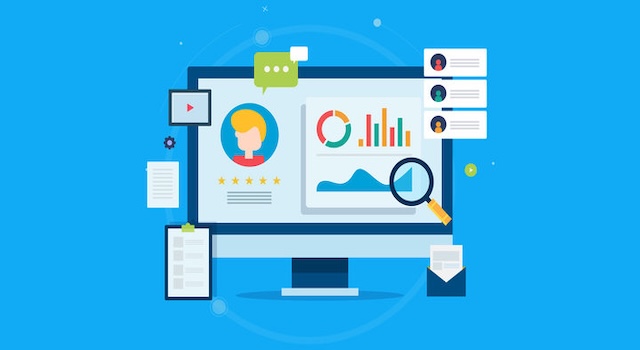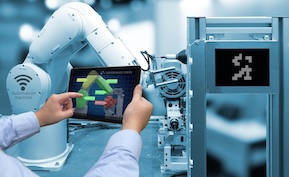CRM
AI-Powered CRM Takes Center Stage in 2025

AI-Powered CRM Takes Center Stage in 2025
Artificial intelligence (AI) has shifted from an experimental add-on to a foundational capability within modern customer relationship management (CRM) platforms. In 2025, AI is not just enhancing sales forecasting or automating data entry—it’s redefining how organizations understand, anticipate, and engage with customers. CRMs are rapidly evolving from static databases into intelligent, predictive ecosystems that guide every step of the customer journey.
The Rise of Intelligent Relationship Management
In the early 2010s, CRMs primarily served as repositories for contact information and deal tracking. Fast-forward to today, and they’ve become dynamic, insight-driven systems that actively support decision-making. The integration of machine learning algorithms, predictive analytics, and natural language processing (NLP) allows organizations to move from reactive customer management to proactive engagement.
According to Gartner, more than 70% of new CRM implementations in 2025 will include embedded AI analytics as a default feature. This shift signals a broader industry movement toward data-driven relationship intelligence—where every email, call, or transaction becomes part of a continuously learning feedback loop.
Core Capabilities Defining AI-Driven CRMs
Modern AI-powered CRM software delivers automation and intelligence across three critical dimensions:
- Predictive Lead Scoring: AI models evaluate historical deal data, engagement levels, and behavioral patterns to determine which leads are most likely to convert. This prioritization helps sales teams focus on high-value prospects and shortens the sales cycle.
- Automated Insights: By analyzing patterns in pipeline activity and customer interactions, the CRM can recommend the next best action—whether it’s scheduling a follow-up call, adjusting pricing, or escalating support issues.
- Natural Language Processing (NLP): NLP engines interpret the tone, sentiment, and intent behind emails, chat transcripts, and recorded calls. Reps gain a deeper understanding of customer emotion and urgency, enabling more personalized engagement.
These features transform the CRM from a passive record-keeper into an active participant in customer management—one that surfaces the right data, at the right time, to the right person.
From Automation to Augmentation
AI in CRM is not simply about automating repetitive tasks—it’s about augmenting human capability. Reps no longer need to manually log every email or meeting; intelligent assistants do it for them. Marketing teams don’t have to guess which campaigns work best; predictive analytics models identify which audience segments will respond before the campaign launches.
This augmentation creates a more strategic workforce. Sales professionals spend less time on administrative work and more time building relationships. Marketers shift from A/B testing toward AI-driven experimentation at scale. Support agents focus on complex issues while virtual assistants resolve routine inquiries instantly.
Why AI-Powered CRM Matters in 2025
The competitive advantage of AI CRM software lies in its ability to merge data velocity (how fast information is collected) with decision velocity (how fast teams act on insights). Companies leveraging AI-driven CRMs experience up to 30% faster response times and report higher accuracy in sales forecasts and churn prediction models.
Three trends underscore this transformation:
- 1. Customer Experience Becomes Predictive: Instead of reacting to customer complaints, CRMs can predict satisfaction scores and alert teams before issues escalate.
- 2. Data Becomes Conversational: Users can query the CRM using natural language—“Show me top prospects by region this quarter”—and get instant insights without SQL or reporting tools.
- 3. Personalization at Scale: AI enables hyper-targeted recommendations and dynamic pricing models based on behavioral data, purchase history, and market conditions.
Challenges: Data Quality, Bias, and Trust
Despite its potential, AI integration in CRM systems presents several challenges. Poor data hygiene remains a major barrier. If the underlying customer data is incomplete or inconsistent, even the most advanced models produce unreliable insights. Organizations must invest in data governance frameworks that maintain accuracy, relevance, and compliance across systems.
Bias in AI algorithms is another concern. If a predictive model is trained on skewed historical data, it may reinforce unfair or inaccurate assumptions about customer behavior. Ethical AI design—combined with transparent reporting and human oversight—will be critical to maintaining trust.
Finally, there’s the question of explainability. Decision-makers need to understand why the CRM recommends one lead over another. Vendors are responding with “explainable AI (XAI)” dashboards that reveal the logic behind each recommendation, building confidence and accountability.
The Broader Ecosystem: Integrations and Collaboration
AI-powered CRMs work best when connected to the broader digital ecosystem. Integration with ERP, marketing automation, and customer service platforms ensures that every department operates from a unified data source. In 2025, the convergence of AI and API-driven integration is producing a new category of “intelligent business platforms,” where insights flow seamlessly across teams.
These platforms are also becoming more collaborative. Through conversational interfaces, users can share dashboards in Slack, Microsoft Teams, or Zoom, transforming static reports into interactive strategy sessions. The CRM becomes not just a tool, but a real-time communication bridge between departments.
Looking Ahead: The Self-Learning CRM
The next phase of AI CRM evolution is autonomy. We’re moving toward self-learning systems that not only analyze data but also adjust workflows automatically based on performance outcomes. For example, if the CRM detects that a certain email cadence produces higher engagement, it can automatically replicate that pattern across similar accounts.
In parallel, AI copilots will provide natural-language assistance within CRM dashboards—suggesting content, generating follow-up emails, or creating proposals automatically. These “agentic” capabilities represent the bridge between today’s predictive CRM and tomorrow’s fully autonomous, context-aware relationship platforms.
Conclusion: From System of Record to System of Intelligence
The CRM has always been a cornerstone of customer management. In 2025, it’s becoming the organization’s system of intelligence—one that learns, adapts, and scales alongside the business. As AI continues to mature, the winners will be the companies that treat their CRM not as software, but as a strategic partner in decision-making.
AI CRM software isn’t just a trend—it’s the foundation of a smarter, more responsive enterprise.






